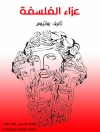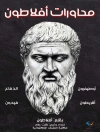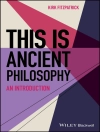The ‘Shu King, ‘ or ‘Book of Documents, ‘ is a seminal work in the canon of Chinese literature that encapsulates the political philosophy and moral teachings of ancient China. Written during the Zhou Dynasty, this collection of historical documents, speeches, and proclamations offers profound insights into governance, ethics, and the principles of virtue. Confucius’s literary style is characterized by clarity and conciseness, often using aphorisms and dialogues to convey complex ideas. The text serves not only as a historical record but also as a reflection on the moral responsibilities of leaders and the need for harmony within society, embodying the Confucian values of righteousness and benevolence amidst the turbulence of its time. Confucius, known as Kong Fuzi, was a philosopher and educator whose teachings influenced generations in East Asia. His intellectual journey was heavily shaped by the societal upheavals he witnessed, leading him to advocate for a return to traditional virtues and ethical governance. His efforts in compiling and interpreting various texts, including the ‘Shu King’, reveal his belief in the transformative power of education and self-cultivation. Through his philosophical inquiries, Confucius sought to provide a foundation for social order that continues to resonate in contemporary discourse. For readers seeking a deeper understanding of the ethical and political frameworks that have shaped Chinese civilization, the ‘Shu King’ is an indispensable text. It challenges contemporary audiences to reflect on the principles of leadership, responsibility, and morality, making it relevant even in the modern era. Embrace this classic to gain insight into the philosophical underpinnings of governance that have endured across millennia.
A propos de l’auteur
Confucius, born in 551 B.C.E. in the state of Lu (now Shandong province, China), is one of the most revered philosophers in Chinese history. His birth name was Kong Qiu, and he was also known as Kongzi or Master Kong. Confucius’ thought, encapsulated in the philosophy known as Confucianism, centered on the principles of ethics, propriety, and social harmony. His teachings emphasize the importance of family, the role of the gentleman or ‘junzi’, and the quest for moral perfection through self-cultivation and the observance of ritual propriety. The ‘Shu King’, also known as the ‘Classic of Documents’, is one of the Five Classics traditionally ascribed to Confucius. It is a collection of documents and speeches that date from the earliest periods of Chinese antiquity to the era of the Zhou dynasty. Although modern scholarship cast doubt on Confucius’ authorship of these texts, his role in compiling and transmitting ancient texts was highly valued in Chinese tradition. ‘Shu King’ offers a window into the administrative affairs, ceremonies, and speeches from ancient China, reflecting the socio-political order that Confucius sought to emulate and restore. His influence on later generations is profound, shaping not just Chinese society but also the broader East Asian cultural sphere, earning him the title ‘The Great Master’ in successive ages. Even today, his philosophy continues to be studied and revered.












